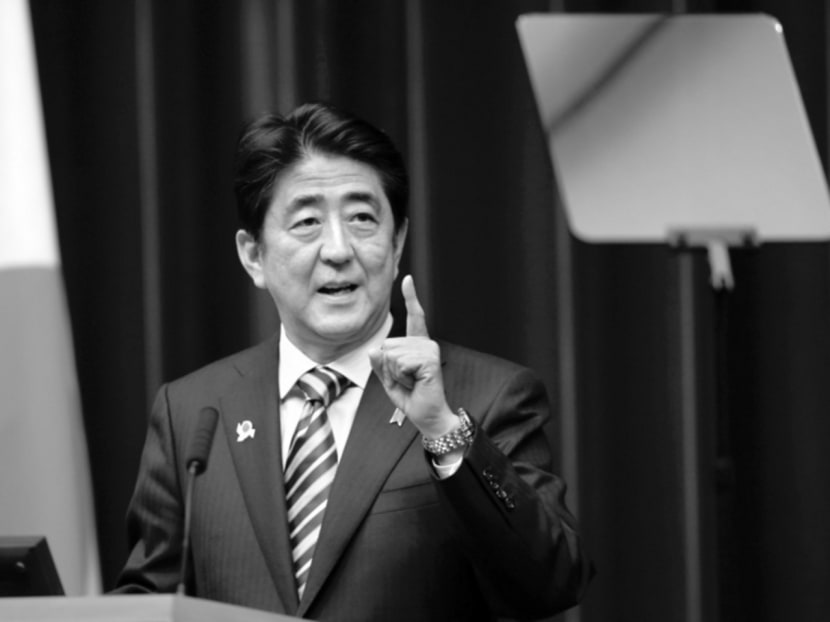In revising military’s role, Abe has to look beyond WWII
Watching Islamic State militants behead two Japanese hostages in quick succession has reinforced Prime Minister Shinzo Abe’s conviction that Japan needs to revise its pacifist post-war Constitution. However, if he wants to ensure that his country has the strength to better respond to 21st-century threats, he will first have to stop relitigating the past.
Watching Islamic State militants behead two Japanese hostages in quick succession has reinforced Prime Minister Shinzo Abe’s conviction that Japan needs to revise its pacifist post-war Constitution. However, if he wants to ensure that his country has the strength to better respond to 21st-century threats, he will first have to stop relitigating the past.
Arguably, a more robust military role for Japan could promote global stability. The country has built a much-admired record since World War II as a force for peace and development, particularly in Asia.
Critics who have lambasted Mr Abe for straying into the Middle East, supposedly provoking the Islamic State with his pledge of US$200 million (S$270 million) in humanitarian aid for refugees from Syria and Iraq, are being unfair. Japan imports 90 per cent of its oil from the region. And aid and investment that helps shore up local economies — Japan’s official development assistance totalled nearly US$1.5 billion in 2012 — is a good thing.
A more forward-leaning military posture would probably not have saved the hostages. But Japan’s well-trained and well-equipped self-defence forces could help keep maritime order in Asia — currently defended mainly by the United States Navy. The suggestion last week that Japan join US-led patrols in the disputed South China Sea elicited predictable fulminations from Beijing. But ensuring freedom of navigation in the region’s busy shipping lanes is vital. At the least, Mr Abe’s constitutional proposals deserve an open, full-throated debate at home.
The problem is that the Prime Minister continues to act as though projecting power in the future requires rewriting Japan’s past. Just the previous week, he waded into the controversy over a description of wartime “comfort women” in a US textbook, telling a Diet committee that he was shocked by passages indicating the women were sex slaves and that many were killed as part of a cover-up. Mr Abe’s right-wing supporters have been aggressively trying to discredit the testimonies of former comfort women and the work of journalists and historians who back the women’s version of events.
The leader’s support for the revisionists is misguided, to say the least; while doubts remain about the exact number of comfort women and the precise role the Japanese military played in procuring them for wartime brothels, mainstream historians, Japanese and Western alike, accept the gist of the women’s story. And if new information were to call any details into question, historians, not government shills, would be the best people to assess it.
By personally meddling in this debate, Mr Abe only reinforces fears about his push for a more aggressive military. While governments from India to Vietnam and the Philippines welcome enhanced defence ties with Japan as a hedge against China, Japanese themselves remain ambivalent about entrusting their nationalistic leader with greater military force. Worse, by reminding the world of Japanese chauvinism, Mr Abe’s crusade erodes the reserves of soft power his country has accumulated since the end of the war.
When the 70th anniversary of Japan’s defeat comes later this year, Mr Abe will probably draw upon the country’s post-war record to argue that it can be trusted with a full-fledged military. He has said he will also affirm past apologies for Japan’s wartime record. A perfunctory reference, though, would be as bad as none at all.
Unless the Prime Minister makes it clear that he accepts the same historical reality that most of his countrymen acknowledge, he will be doomed to spend more time arguing over the past than preparing for the future.







